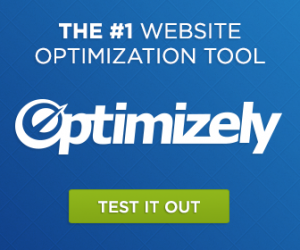In today’s dynamic business landscape, organizations are constantly seeking ways to streamline operations and enhance employee satisfaction. One crucial aspect of this endeavor is benefits administration, particularly in the realm of health insurance. As healthcare costs continue to rise, employers are increasingly turning to group health insurance services to simplify the process and ensure comprehensive coverage for their workforce. Group health insurance offers numerous advantages for both employers and employees. This affordability makes them an attractive option for businesses of all sizes, from small startups to large corporations. One of the primary benefits of group health insurance is the ease of administration. Employers can work with insurance providers to select a plan that meets the needs of their workforce, whether it is a traditional health maintenance organization HMO, preferred provider organization PPO, or high-deductible health plan HDHP. Once the plan is in place, the administrative burden shifts to the insurance provider, allowing employers to focus on other strategic initiatives. Group health insurance also simplifies enrollment and eligibility management.
Employers can easily add new employees to the plan and remove those who leave the company, ensuring seamless transitions and continuity of coverage. Additionally, most group plans offer open enrollment periods during which employees can make changes to their coverage, further streamlining the process. Another advantage of group health insurance is the breadth of coverage options available. Employers can customize plans to include medical, dental, vision, and even ancillary benefits such as life insurance and disability coverage. This comprehensive approach ensures that employees have access to the care they need while minimizing out-of-pocket expenses. Furthermore, group health insurance fosters a sense of security and stability among employees. Knowing that they have access to affordable healthcare coverage provides peace of mind, allowing them to focus on their work without worrying about medical expenses. This, in turn, can lead to higher job satisfaction and increased employee retention, which is beneficial for both employers and employees alike. In addition to traditional group health insurance, many employers are exploring innovative solutions such as health savings accounts HSAs and flexible spending accounts FSAs.
 These accounts allow employees to set aside pre-tax dollars to cover qualified medical expenses, providing them with greater flexibility and control over their healthcare dollars. From a financial standpoint, group health insurance can also offer tax advantages for employers. Contributions made towards employee premiums are typically tax-deductible, reducing the overall tax burden for the company and Visit Site. Additionally, employers may be eligible for tax credits or subsidies for offering health insurance coverage to their employees, further incentivizing participation in group plans. For employees, group health insurance provides access to a wider network of healthcare providers and facilities. With larger pools of insured individuals, group plans often negotiate lower rates with providers, resulting in cost savings for both the employer and the employee. This increased access to care can lead to better health outcomes and improved overall well-being for employees and their families. Group health insurance services offer a myriad of benefits for employers and employees alike. From simplifying benefits administration to providing comprehensive coverage options, group plans are a valuable tool for enhancing employee satisfaction and driving organizational success.
These accounts allow employees to set aside pre-tax dollars to cover qualified medical expenses, providing them with greater flexibility and control over their healthcare dollars. From a financial standpoint, group health insurance can also offer tax advantages for employers. Contributions made towards employee premiums are typically tax-deductible, reducing the overall tax burden for the company and Visit Site. Additionally, employers may be eligible for tax credits or subsidies for offering health insurance coverage to their employees, further incentivizing participation in group plans. For employees, group health insurance provides access to a wider network of healthcare providers and facilities. With larger pools of insured individuals, group plans often negotiate lower rates with providers, resulting in cost savings for both the employer and the employee. This increased access to care can lead to better health outcomes and improved overall well-being for employees and their families. Group health insurance services offer a myriad of benefits for employers and employees alike. From simplifying benefits administration to providing comprehensive coverage options, group plans are a valuable tool for enhancing employee satisfaction and driving organizational success.



